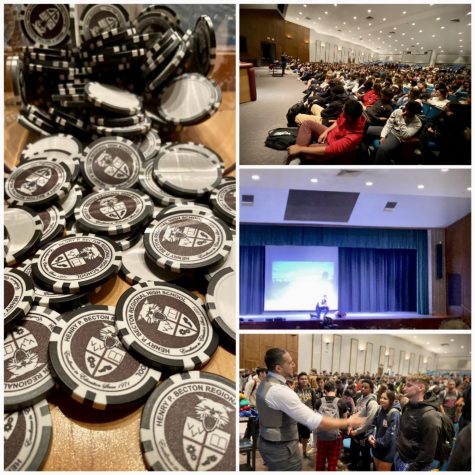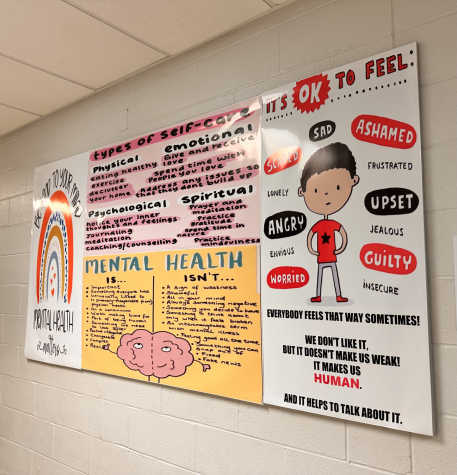Study Harder–Not Longer: Essential Tips on Student Studying Habits
We have all been there– those moments of overwhelming amounts of nerves take over your body. Trying frantically to find the perfect song, the perfect spot, the perfect pen. Staring at the wall trying to concentrate your mind once again. The boredom, foot tapping, and pen clicking. Trust me when I say we have all been there. Growing up, studying was portrayed as something easy and beneficial to all students. On TV and in movies, characters would be seen studying for hours with no issues. When picturing a student studying, most people will picture someone sitting at a desk in silence with just books and something to write with. While in reality for most students, it is not just this black-and-white picture we all imagine. Some students are not able to focus or study the “traditional” way and might thrive in other ways. Due to the numerous distractions students face daily, some end up giving up on studying. Finding out what type of environment and organization works for you while studying is extremely important. There are thousands of tips and tricks to help you find what makes you thrive studying, you just might have not stumbled upon the right ones yet.
Staying engaged is one of the most crucial steps of a good study. There are a variety of different elements allowing you to stay engaged. Without everything going in your favor, studying can be exceedingly difficult. Ten minutes of studying unengaged can feel never-ending. One of the most popular and beneficial ways to stay engaged with your studies is music. Whether it’s in headphones or out loud, music has been known to help concentrate and refocus students during a time of lost engagement. The most common form of studying music is classical or even the modern day lofi tunes. The calming and harmonious sounds create a tranquil environment. However, you can listen to any music you, please. Whatever makes you feel motivated and focused can improve that state of engagement. Another way to stay engaged, staying on the audio track, is background sounds. It might sound a little silly, but playing the sounds of rain falling or a fireplace crackling in the background of your studying can help. The reason is– the sounds transfer your mind into a comforting/peaceful place. Furthermore, not using your phone or any other distracting device while studying is beneficial. Notifications and social media can latch you in for hours unnoticed. Turning off your phone can help you focus on what you are studying instead of who is texting and posting.
Additionally, a quiet and comfortable place to study is essential. Finding a comfortable location is difficult at first, but not impossible. Little things like lighting and noise can lift you out of that study bubble and keep you from achieving your goal. A good way to find your perfect study place is to think about what environment makes you feel most focused. Most of us will think of the library or our rooms, but for some, that is not the case. Finding a comfy and quiet place with no distractions is crucial in your studying routine.
Furthermore, organization is key. A great first start is filing your notebooks, folders, and binders by subject. In the long run, it is more convenient to have all assignments in their designated place. Another great approach is going in chronological order when completing assignments. When you start one assignment and then randomly start another mid-work, it is an ongoing cycle of confusion. You are allowing yourself to be easily distracted. In the end, it is going to result in you getting overwhelmed and not completing exactly what you needed to. Laying out one assignment at a time and completing them before you start a new assignment is best. Lastly, set a schedule. Start off with planning enough time for each subject. If you know that one subject requires more time than another, leave more time for that subject. Limit yourself to how much time you are spending on one subject. If your time exceeds two hours, leave it and move on to another subject. It’s likely that you will get bored and just be forcing yourself to study without gaining knowledge. Also, taking breaks in between study sessions is necessary. When scheduling breaks, make sure you drink water and get a bit of fresh air. When you feel refreshed and ready to refocus on your studies, you can go back. Do not push yourself to study for hours without a break. Breaks can even include reading a non-school related book, using your phone, or talking to peers. A break is always good for your concentration and engagement– and is a great reward for hard work!
To conclude, studying can be done in many ways. You need to find your own study routine and build it as you go on. Finding a comfortable environment and organizing are just the first steps. As you further your education, you will always find new tips and tricks to make studying easier and more efficient for you. It might be hard at first but if you stick to it, you will succeed.

Ashlee Offreda is delighted to embark on her second and final year being part of the Cat’s Eye View newspaper staff! Offreda is officially a senior and...









